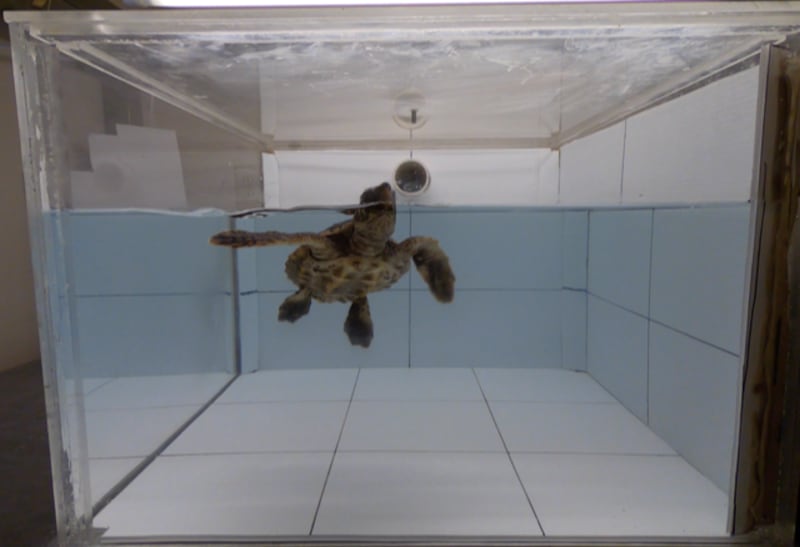Sea turtles mistake plastics for prey because they smell like food, scientists have found.
It has long been thought that these creatures visually mistake polythene debris for food, such as jellyfish or seagrass.
But researchers found plastics in the ocean trap microbes and algae, which then break down inside and release food-like odour, a phenomenon known as biofouling.
Biofouling leads the turtles into an “olfactory trap”, causing them to ingest deadly marine plastic pieces.
Dr Kenneth J Lohmann, of the University of North Carolina and one of the study authors, said: “It’s common to find loggerhead turtles with their digestive systems fully or partially blocked because they’ve eaten plastic materials.
“There also are increasing reports of sea turtles that have become ill and stranded on the beach due to their ingestion of plastic.”
The researchers studied 15 young loggerhead turtles brought up in captivity.
They looked at how the creatures reacted to the smell of turtle food, ocean-soaked plastic, clean plastic and water.

In the lab setting, the turtles ignored the scents of clean plastic and water, but responded to the odours of food and ocean-soaked plastics by displaying foraging behaviour, which included repeatedly poking their noses out of the water and increasing their search activity.
Joseph Pfaller, of the University of Florida, US, and lead author on the study, said: “We found that loggerhead sea turtles respond to odours from biofouled plastics in the same way they respond to food odorants, suggesting that turtles may be attracted to plastic debris not only by the way it looks, but by the way it smells.
“This ‘olfactory trap’ might help explain why sea turtles ingest and become entangled in plastic so frequently.”
No plastics were consumed during the experiments and the turtles were released into the ocean after the study, the researchers said.
The study did not determine the exact nature of the plastic-associated odours that attracted the turtles but the scientists believe dimethyl sulfide, a stinky chemical emitted by algae, could be the culprit.
They add further studies are needed to understand more about the chemicals emitted through biofouling.
But the team warn their findings, published in the journal Current Biology, show plastics pollution is putting sea turtles and other marine animals at risk.
Dr Lohmann said: “One concern this study raises is that dense concentrations of plastics may make turtles – or other species – think the area is an abundant source of food.
“These areas may draw in marine mammals, fish and birds because the area smells like a good foraging ground.
“Once these plastics are in the ocean, we don’t have a good way to remove them or prevent them from smelling like food.
“The best thing we can do is to keep plastic from getting into the ocean at all.”








